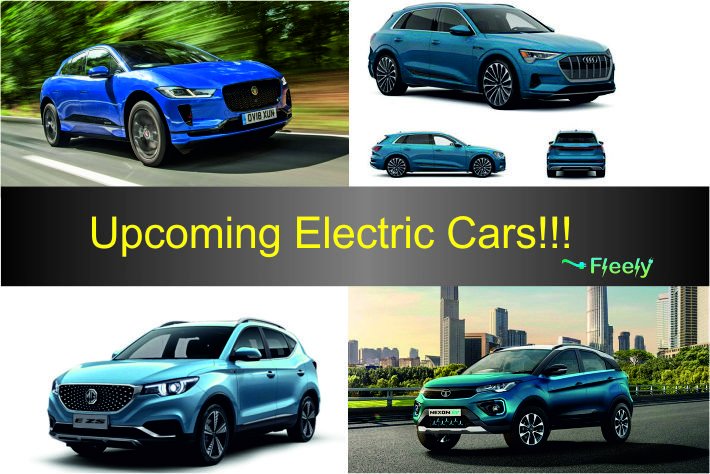The future of electric cars in India is looking very promising. With the government’s increasing focus on promoting electric vehicles and the rapidly falling prices of batteries, it is expected that electric cars will make up a significant portion of new car sales in the country within the next decade. There are many reasons for the growing popularity of electric cars in India. Firstly, they are much cheaper to operate and maintain than traditional petrol or diesel cars. Secondly, they cause far less pollution and are therefore much better for the environment. Finally, electric cars are becoming increasingly more popular globally, and India is keen to be at the forefront of this technology. The Indian government has set an ambitious target of having all new cars sold in the country be electric by 2030. To achieve this, a number of policies and initiatives have been put in place, such as providing subsidies for the purchase of electric vehicles and setting up charging infrastructure. There are some challenges that need to be addressed before this target can be met, such as the high upfront cost of electric vehicles and the lack of a comprehensive charging network. However, with the right policies in place, India is well on its way to becoming a world leader in electric vehicles.
By 2030, the Modi government wants to power all of India with 100% renewable energy. Electric vehicle (EV) manufacturer Tesla, the global leader in EV production, has announced plans to open a manufacturing plant in India. Many electric scooter manufacturers have begun to manufacture their products in India. The Chinese market for Lithium-Ion batteries is beginning to shift towards India, where new research is beginning to reduce the market’s dependence on China. In India, the market for electric vehicles is highly sensitive to price, so an e-vehicle shift will only be sustainable if it is inexpensive. Electric vehicles require a skilled workforce in India. One of the most serious problems that the automobile sector will face is the possibility of market disruption.
As a result of the introduction of the Faster Adoption and Manufacturing of Hybrid and Electric Vehicles Act in India, widespread adoption of these vehicles is now possible. India currently only has 300 charging stations; however, by 2023, India intends to have 2900 charging stations. To address the technology and skilled labor issues, a new Bachelors and Vocational curriculum must be developed.
Electric vehicles (EVs) account for only 1.17% of the total passenger vehicle production in India in the first six months of the calendar year 2022 – that is, they make up only 1.17% of the total. According to the Indian Society of Electric Vehicles, there are now around 26 EV models available, with about 20 of them priced at more than INR 50 lakh, putting them far out of reach of average automobile buyers.
Electric vehicle (EV) market globally is expected to grow at a compound annualised rate of 21.7% over the next five years. By 2020, the market is expected to be 39.21 million units, a 20% increase over its current level. This growth is being driven by a variety of factors, including concerns about pollution.
TATA motors, JBM auto, Olectra greentech, Mahindra electric mobility, Ola electric mobility, Ashok Leyland electric, Hyundai, Hero electric, Menza motors, Lohia auto, Kia motors, and other companies are among the top electric vehicle producers in India.
An EV’s main advantage is its low operating cost, which is roughly 20 per cent (or less) of the price of using a gasoline or diesel vehicle. An EV costs Rs 1-2 per km less to run than a gasoline-powered car, which costs around Rs 8-10 per km.
What Is The Future Of Electric Vehicles In India?

A study conducted by CEEW-CEF predicts that the EV market in India will be worth a total of $206 billion by 2030. This would necessitate a significant investment in EV infrastructure, as well as the production of EV batteries and charging stations.
NITI Aayog predicts that electric vehicles will make up 80% of two and three-wheelers, 40% of buses, and 30% to 70% of cars in India by 2030. Despite the high cost of the battery, a lack of high-performing electric vehicles, and a lack of infrastructure, these problems continue to be a problem. The government is providing financial incentives to encourage the purchase of electric vehicles.
However, if you intend to use an electric vehicle for an extended period of time, the upfront cost may be prohibitively expensive. Furthermore, the cost of batteries and chargers is a major impediment to the widespread adoption of electric mobility in India. This is primarily due to a lack of public transportation. The government of India has made a number of efforts to reduce air pollution and use less fossil fuels in India. However, while electric vehicles are currently available, there are still some hurdles that must be cleared before they can be used in mainstream transportation. The high cost of electric vehicles is one of the most significant barriers to their widespread adoption. Electric vehicles are frequently more expensive than gasoline vehicles. Because of this, EV batteries and chargers are costly. In addition to infrastructure issues, there is also a lack of public acceptance of electric vehicles. Because there are so few charging stations available in India, drivers may not be able to recharging their batteries. It is especially true in rural areas, where there are few charging stations. Electric vehicles are also not widely available in high performance. Electric vehicles are not as efficient as gasoline-powered vehicles in terms of energy efficiency. This is because EV batteries consume more energy to travel the same distance as their battery counterparts. In addition, they are more expensive to operate and maintain. Despite these challenges, India is making progress toward establishing an electric ecosystem. As a result, the government is funding the development of charging stations, and the number of electric vehicles is increasing. Electric vehicles are also being encouraged to be used in the country’s urban areas. This will reduce fossil fuel dependency and improve air quality.
Electric Vehicles Are The Future In India
Electric vehicles are expected to be a common mode of transportation in India in the next few years. They are not only more environmentally friendly, but they are also more likely to have a positive economic impact. Electric vehicles will account for 80% of two- and three-wheelers, 40% of buses, and 30%-70% of automobiles by 2030. This shift in policy shows how much of a priority the government places on electric vehicles.
Is It Worth To Buy Electric Car In India?
Electric cars are becoming increasingly popular in India, as they offer a number of advantages over traditional petrol or diesel cars. Electric cars are much cheaper to operate and maintain, and they emit no pollutants. Electric cars also have a much longer range than petrol or diesel cars, making them ideal for long-distance travel.
Due to skyrocketing fuel prices, many people are turning to alternative fuels. Electric vehicles benefit the environment because they are non-polluting and do not consume fuel. The lower the maintenance cost, the less expensive it is to repair on a monthly basis. Smoke from the exhaust is not detected, so there is no need for a routine MOT. Because of a lack of infrastructure and staff, electric vehicles (EVs) are luxuries currently. The residential charging network in India has yet to be fully developed, and there are a number of charging points across the country. Electricity is going to be less expensive than ICE-powered vehicles every day.
When using the home charging points, an electric car can be charged for up to 12 hours. The Tata Nexon EV is available in India for a starting price of Rs 14 lakh. If Maruti Suzuki launches its EV avatar for the WagonR, it will cost more than Rs 10 lakh. A gasoline model is available for less than Rs 5 lakh. According to experts, the cost of running an EV over several years is just as significant as the price difference. We are unsure of the future, as well as the state of the EV. If you can afford one, an EV is an excellent choice, and if you don’t, an EV can be used as a secondary vehicle.
In addition, electric vehicles emit no greenhouse gases, which is a positive for the environment. Electric vehicles can help reduce CO2 emissions in the long run as well. An electric vehicle emits roughly one-seventh the amount of CO2 as a gas vehicle.
An electric car is a great choice if you want to be environmentally friendly and save money. They are also less expensive to operate and produce less CO2 than gasoline, which is great for the environment. Electric vehicles are capable of recouping their initial investment in as little as eight years or less depending on the model. As a result, anyone looking for a more reliable and futureproof transportation solution will benefit from them.
Do Electric Cars Have Future?

Electric cars are becoming more popular as the years go on. Many people are beginning to see the benefits of owning an electric car. They are more environmentally friendly than gas cars and they are also cheaper to operate. The future of electric cars is looking bright as more and more people are beginning to see the benefits of owning one.
More than a quarter of all greenhouse gas emissions in the United States are produced by the transportation sector. We may be able to save money by ending our reliance on cars that run on gasoline, but we may also be able to save the environment. If we are going to see an electric car revolution in the United States, we must make certain that car manufacturers are producing vehicles with as much green technology as possible. Electric vehicles are not as clean as their gasoline-powered counterparts in terms of human rights. Because coal power accounts for a disproportionate share of China’s energy requirements for mineral processing and refining, global greenhouse gas emissions are greatly increased. Legislators have the power to require automakers to source materials ethically in order to address human rights abuses. The European Union is drafting a regulation that would require manufacturers to disclose information about human rights or environmental abuse in their supply chains.
According to reports, automobile manufacturers are being asked to list mines and refineries that violate human rights in their supply chains. Community groups argue that the United States’ outdated mining laws do not protect them. A free trade agreement with the United States does not mean that mining abuses will always occur somewhere else.
This prediction is significant because it indicates that electric vehicles will be the norm in the future. Electric vehicles are much less expensive to operate than traditional gasoline-powered vehicles, which is expected to have a significant impact on the automotive industry. In addition to its environmental prediction, Exxon Mobil has made several other significant announcements. Electric cars emit far less carbon dioxide than gasoline-powered vehicles, and renewable energy sources can help them further reduce emissions. This is a significant development because climate change is one of the most pressing global challenges of our time.